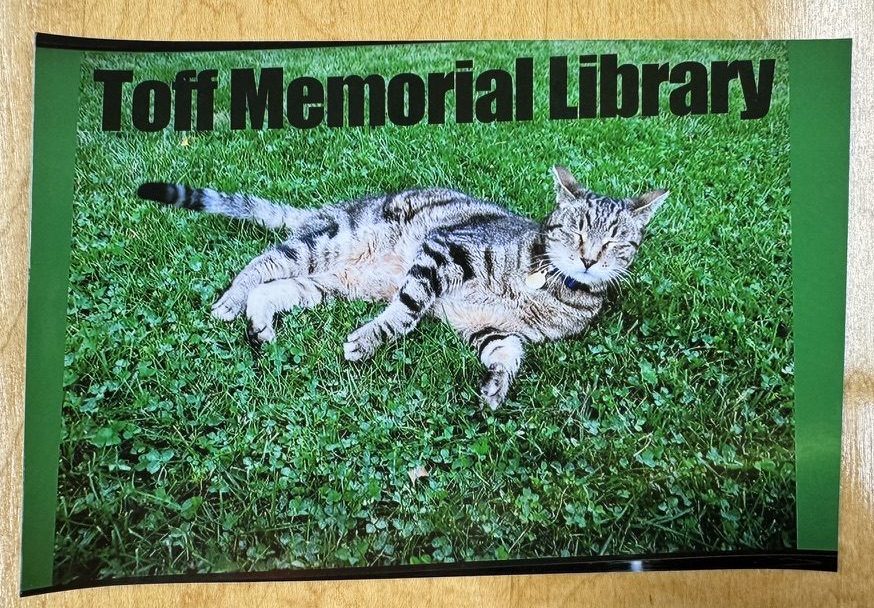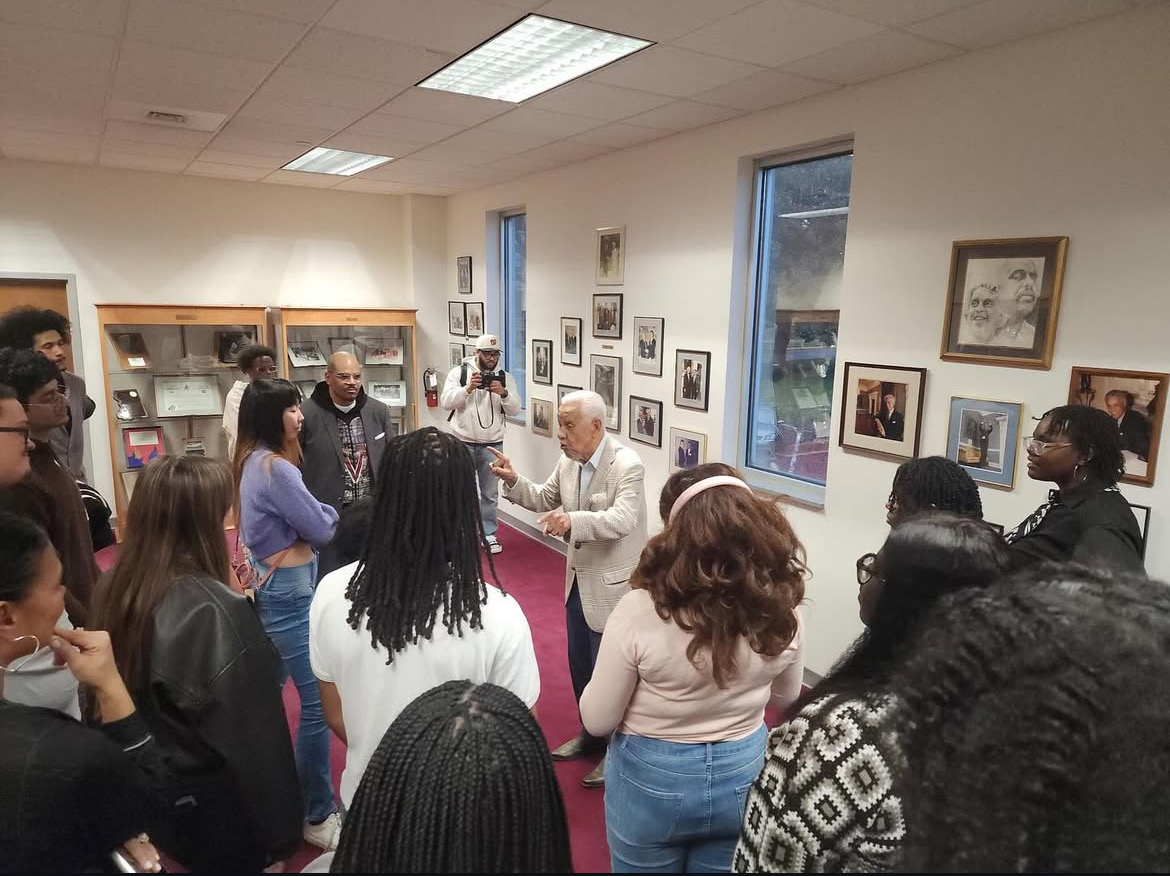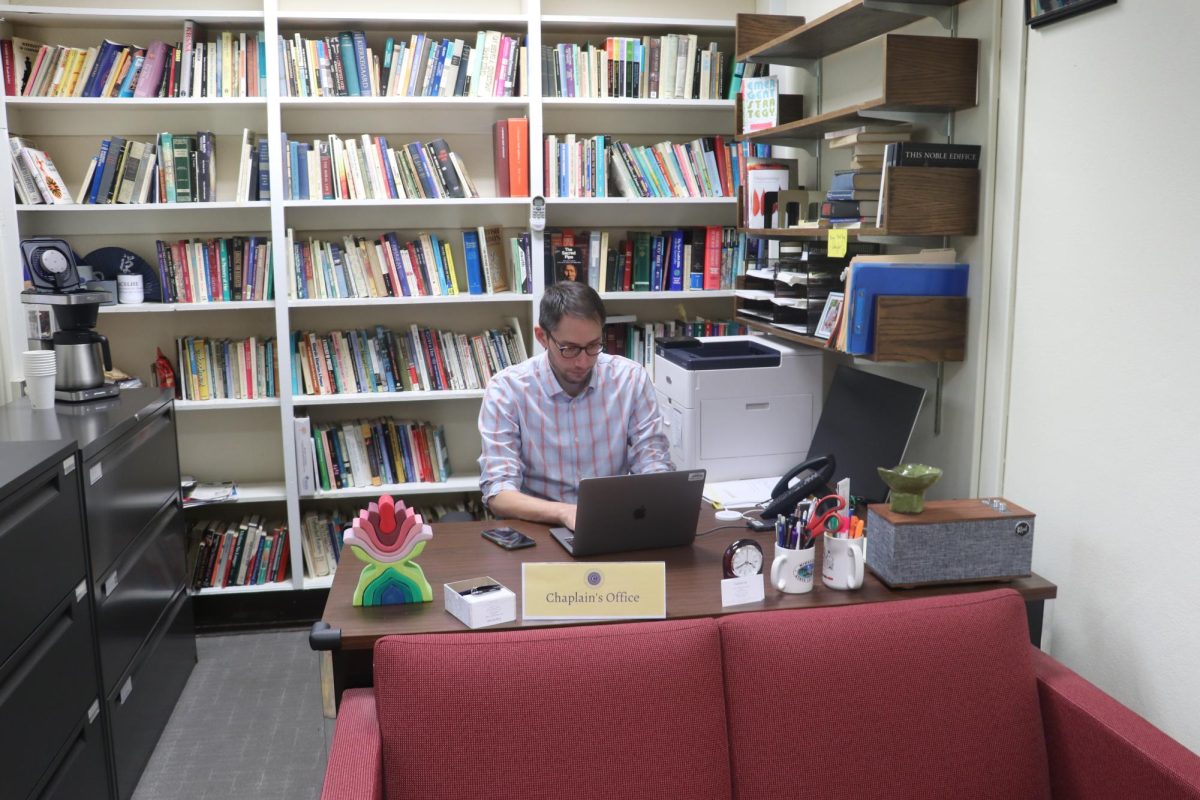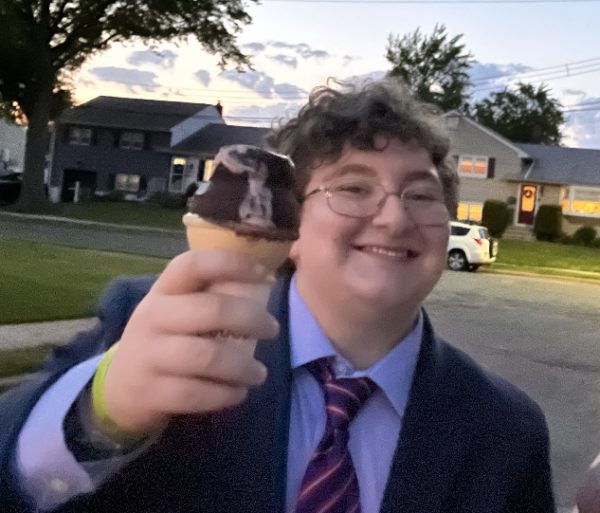“As long as you want to wrestle with what it means to be a human being and try to live as the best version of yourself, the chaplain needs to be a place for you,” is what Rev. Schuyler Vogel ’07 thought while he was a student at Carleton College. He continues to let that belief shape his goals as he enters his first year as chaplain of Carleton College.
Vogel was hired to the position of college chaplain after his predecessor, Carolyn Fure-Slocum ’82 — who was chaplain while he was a student — retired. Vogel graduated from Carleton as a religion major in 2007 and from Harvard Divinity School in 2014.
Vogel is ordained as a Unitarian Universalist minister and served the Fourth Unitarian Universalist Society in the City of New York for almost seven years, as well as other Unitarian Universalist congregations in Wisconsin, Illinois, Massachusetts and Florida, before coming to Carleton. He plans to continue to strive for a welcoming chapel environment for people of all religions and belief systems and to work closely with social action and Inclusion, Diversity, and Equity initiatives on and off campus.
In his junior year at Carleton, Vogel started to work for the chapel as a chaplain’s associate. At the time, he labeled himself as a progressive Christian, but said that he “was somebody who wasn’t formed in a traditional sense,” and that he “didn’t have an ideological or doctrinal system in place.”
Still, he took on a leadership role in the chapel and helped lead what is now Evensong and a progressive Christian discussion group. Even though Vogel was still pondering his own religious beliefs, Fure-Slocum told him that he would make a great minister, which is part of what inspired him to pursue that career.
“I had always said that when Carolyn retired, I should throw my hat in the ring and see what would happen,” Vogel said. He wasn’t sure if he would get the position as he had no experience in college chaplaincy except for being a Chaplain’s Associate, but as the hiring process progressed he became increasingly excited at the prospect of becoming chaplain and responding to the Carleton community’s needs.
While Vogel has only been back at Carleton for a short time, he is inspired by the student body and is “impressed that, while Carleton is not a perfect institution, it is fundamentally good and is trying to do the right thing. I know there are some institutions where students will come back and pull back the veil and say ‘Wow, this is a mess,’ but that has not been my experience.”
It has been 16 years since Vogel was last at Carleton, and he sees a difference between the attitudes of the student body today and when he was a student.
“Carleton was a different place in the sense that the world was a different place,” he said about the political environment when he was a student. “There was no talk about divesting from fossil fuels or [about] pronouns; Carleton students today are a lot savvier and more engaged.”
To Vogel, his identity as a Unitarian Universalist means that, “we are inherently multifaith. You don’t have to say you believe in any particular thing. We would say at my old congregation, ‘You can believe anything you want so long as it is within the bounds of love and justice.’”
While there is a great amount of religious diversity at Carleton and in the greater Northfield community, Vogel believes that in order to create social change, we need to look past our religious disagreements and unite for a common cause of humanity.
“We can say we don’t really agree about God or what happens in the afterlife,” he said, “but we know that it is wrong for people in Northfield to have substandard housing, or for greedy landlords to raise rent year after year, or when people are being deported or fear the police.”
When he came back to Carleton as college chaplain, it was more difficult for Vogel to see obvious areas of growth for the chapel because he “inherited a well-run, healthy, well respected institution.” However, he believes that there is a lot of work to be done in the realm of IDE and finding a balance between creating a space that is neutral and welcoming of all schools of thought and protecting and caring for those who have been historically marginalized.
Vogel’s opinion is guided by the Desmond Tutu quote: “If an elephant has its foot on the tail of a mouse and you say that you are neutral, the mouse will not appreciate your neutrality.”
Because some Carleton students are not Christian or have been harmed by Christianity, Vogel says that it is important to deconstruct some of the forces that exclude non-Christian students, even if they aren’t always intentional. “The chapel has Christian prayer books, there are crosses everywhere, it is built in the shape of a cross which is a Christian architectural style,” he said. “It is not a neutral space, it is a Christian space, especially for those who are not Christian or not comfortable with that.”
Even though he aims to welcome all, Vogel says there are some values that the chapel will not budge on. He said, for example, “We are queer-affirming. The chapel’s values are not going to be compromised because not everyone on campus affirms those things from a religious perspective.”
Ultimately, Vogel’s goal is to offer a space for everyone to participate in religion and faith however they see fit. He says that “[…] our job as chaplains is to be a space where everyone belongs and also feels held in safety and wholeness […] The individual spiritual journey that everyone is on is different from each other, but I think that is profoundly beautiful.”












